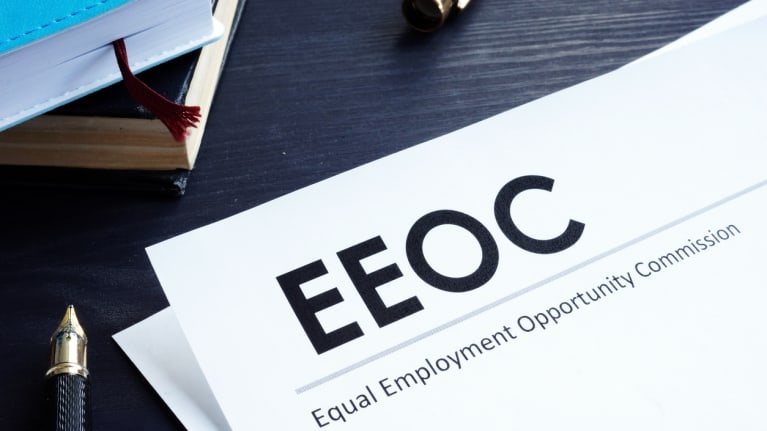
?Equal Employment Opportunity Commission (EEOC) member Janet Dhillon, a Republican, has resigned effective Nov. 18, leaving the EEOC deadlocked—split between two Democrats and two Republicans. As a result of there being a Democratic chair with a lack of a Democratic majority, the EEOC has not published regulatory agendas recently. The EEOC commissioners must vote to issue guidance and regulations or begin investigations. We’ve gathered articles on the news from SHRM Online and other media outlets.
Biden’s Nominee Hasn’t Yet Been Confirmed
Dhillon’s term expired in July but she has kept her seat because the Senate hasn’t yet confirmed Biden’s nominee to fill the post, Kalpana Kotagal, a civil rights attorney. Dhillon, who chaired the EEOC during the Trump administration, could have remained in the seat until the end of the year. The Senate Health, Education Labor and Pensions Committee deadlocked on Kotagal in May.
At the EEOC, Dhillon prioritized compliance assistance and the agency’s conciliation program. She also led during the height of the COVID-19 pandemic, which raised new and complex workplace discrimination issues.
Reforms to Conciliation Withdrawn
President Joe Biden signed a resolution last year withdrawing reforms to conciliation that the EEOC had made under the Trump administration.
Under the conciliation reforms, the EEOC was to provide employers with “a written summary of the known facts,” among other information, when an employee files a discrimination charge. Conciliation is similar to mediation, except that an EEOC investigator, rather than an independent third party, conducts conciliation procedures. Opponents of the reforms said it gave businesses a chance to drag talks out.
(SHRM Online) and (Slate)
Partisan Divide
The partisan divide at the EEOC has been more apparent recently. Dhillon co-wrote a Wall Street Journal op-ed saying that the commission’s Democrats tried to compromise the Republican majority by unilaterally issuing a technical assistance document on LGBTQ workplace discrimination protections that a court later blocked.
(The Wall Street Journal) and (SHRM Online)
Burrows Now Heads EEOC
After Biden became president, Commissioner Charlotte Burrows was named chair of the EEOC. She has served as an EEOC commissioner since 2015, having been initially nominated by former President Barack Obama. In 2019, she was re-nominated and unanimously confirmed for a second term ending in 2023. Following Dhillon’s resignation, the EEOC will have two Democrat commissioners—Burrows and Jocelyn Samuels, who is vice chair—and two Republican commissioners—Andrea Lucas and Keith Sonderling.
Kotagal’s Background
Kotagalis an employment attorney who represents plaintiffs in civil rights litigation and is a diversity, equity and inclusion expert. She also is co-author of the inclusion rider, a provision in an actor’s, director’s or content creator’s contract that requires a certain level of diversity among a film’s cast and crew. For example, an actor could request that a certain proportion of the production crew be LGBTQ, people of color or women. If Kotagal is confirmed, most EEOC commissioners will be Democrats.


